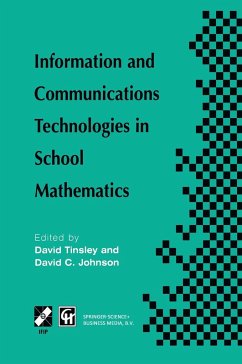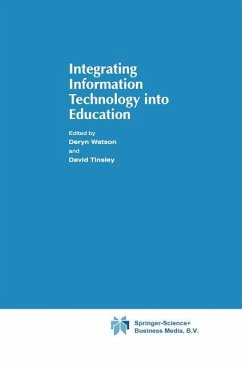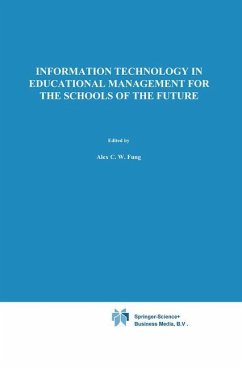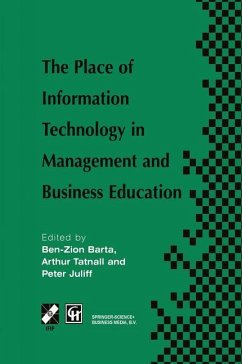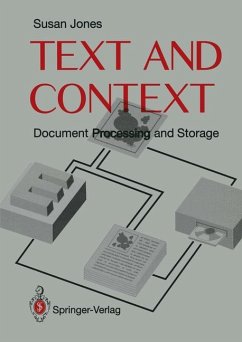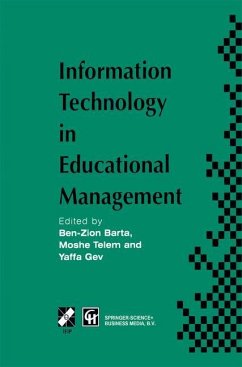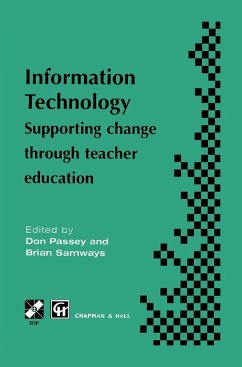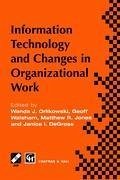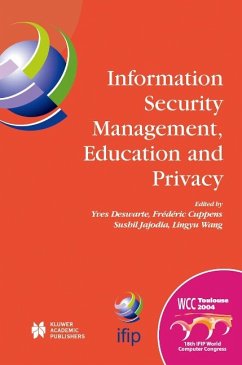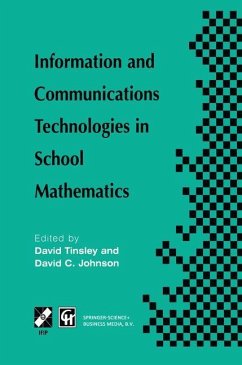
Information and Communications Technologies in School Mathematics
IFIP TC3 / WG3.1 Working Conference on Secondary School Mathematics in the World of Communication Technology: Learning, Teaching and the Curriculum, 26-31 October 1997, Grenoble, France
Herausgegeben: Tinsley, David; Johnson, David B.

PAYBACK Punkte
38 °P sammeln!
The International Federation for Information Processing, IFIP, is a multinational federation of professional technical organisations concerned with information processing. IFIP is dedicated to improving communication and increased understanding among practitioners of all nations about the role information processing can play in all walks of life. This Working Conference, Secondary School Mathematics in the World of Communication Technologies: Learning, Teaching and the Curriculum, was organised by Working Group 3.1, Informatics in Secondary Education, ofiFIP Technical Committee for Education, ...
The International Federation for Information Processing, IFIP, is a multinational federation of professional technical organisations concerned with information processing. IFIP is dedicated to improving communication and increased understanding among practitioners of all nations about the role information processing can play in all walks of life. This Working Conference, Secondary School Mathematics in the World of Communication Technologies: Learning, Teaching and the Curriculum, was organised by Working Group 3.1, Informatics in Secondary Education, ofiFIP Technical Committee for Education, TC3. This is the third conference on this theme organised by WG 3.1, the previous two were held in Varna, Bulgaria, 1977, and Sofia, Bulgaria, 1987-proceedings published by North-Holland Elsevier. The aim of the conference was to take a forward look at the issue of the relationships between mathematics and the new technologies of information and communication in the context of the increased availability of interactive and dynamic information processing tools. The main focus was on the mathematics education of students in the age range of about ll to 18 years and the following themes were addressed: - Curriculum: curriculum evolution; relationships with informatics; - Teachers: professional development; methodology and practice; - Learners: tools and techniques; concept development; research and theory; - Human and social issues: culture and policy; personal impact.





